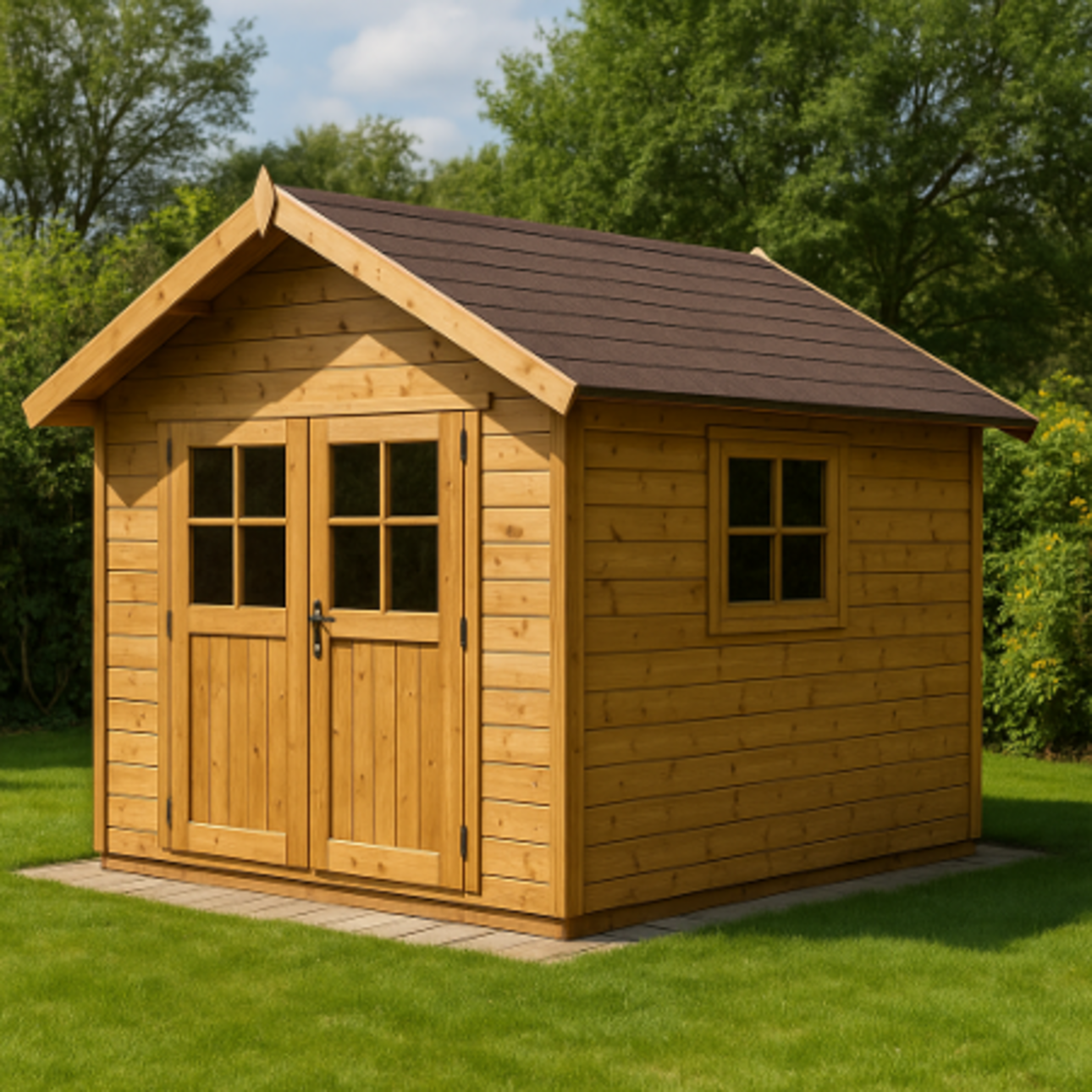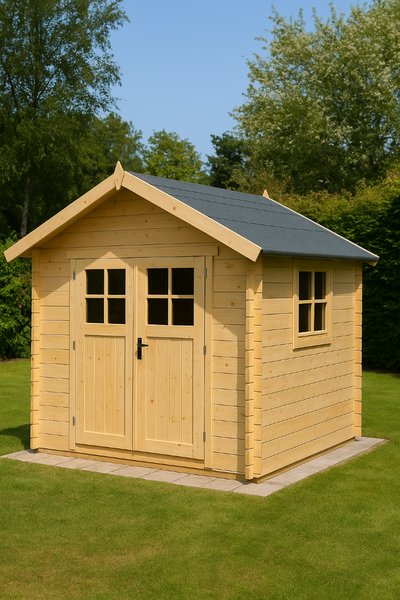
Some everyday objects have a timelessness that resists trends. The traditional wooden garden shed, with its pitched roof, belongs to this family. For decades, they have stood at the back of gardens, discreet and reassuring, combining functionality with simple beauty. A symbol of the French art of living, it combines know-how, authenticity and the pleasure of the gesture.
The double-sloped roof is a visual given. Two symmetrical slopes, a clean, balanced ridge, a shape that's both robust and elegant. Inspired by rural barns, it has that rare ability to blend in just as well in a bucolic garden as in a more contemporary space.
It crosses generations because it reassures: a stable structure, a familiar aesthetic, an echo of our childhood homes. In a world where everything changes too quickly, it remains a safe bet.
Choosing wood means choosing warmth. Spruce, Nordic pine and larch are all species that offer strength and charm. Produced from sustainably managed forests, these woods embody a commitment to the environment as well as a taste for raw materials. Unlike metal or PVC, wood ages gracefully. It's also a material that breathes: it adapts to the seasons, protects against both cold and heat, and offers that authentic, almost sensory contact with nature. To discover some inspiring models, explore the selection of wooden garden sheds on the Happybois website.
The traditional garden shed is not just a place for storage: it's a room in the garden in its own right. Under its pitched roof, there's room for everything: tools, summer furniture, firewood and bicycles.
But its versatility goes beyond simple storage. It can become a workshop where the light filters in gently, a reading corner sheltered from the wind, or even a mini outdoor office.
Thanks to its height under the ridge, it offers a pleasant interior volume. Shelves, wall storage and even a small workbench can easily be installed. It's a micro-architecture designed to last and make everyday life easier.
The appeal of classic design lies in its sobriety. Straight lines, a well-defined roof, horizontal or vertical cladding to suit your taste. There are often glass doors, small windows or discreet details that evoke the chalets of yesteryear.
Each shelter can be customised: natural colours for a Scandinavian effect, shutters and decorative ironwork for a more rustic feel, or lightly greyed untreated wood for a contemporary style. Here, beauty comes from simplicity and the right proportions.

Contrary to popular belief, wood requires very little maintenance to keep it looking its best. A coat of woodstain or a water-repellent treatment every two or three years is enough to extend its life. This becomes almost a ritual: an opportunity to breathe new life into the structure, to change its colour, to assert a new personality.
Well-maintained wood becomes more beautiful as it ages, as if it were absorbing a little of the light and the seasons it goes through.
Behind its primary function, the wooden shed is often the silent backdrop to the simplest of moments: an afternoon of DIY, preparing the vegetable garden, taking a break in the shade with a cup of coffee. It embodies the conviviality of everyday life, the idea of a garden that's lived and lived in.
In some families, it almost becomes a character in the landscape, a witness to the passing years, a refuge for memories.
The traditional garden shed remains so popular because it combines three rare qualities:
Choosing a wooden garden shed means taking a gamble on durability. It means choosing materials rather than trends, know-how rather than fashion, gestures rather than quick consumption. Its pitched roof and wooden walls tell a story: a story of craftsmanship that stands the test of time and a way of life that celebrates nature.
In a garden, it's not just useful, it's alive. And perhaps that's its greatest secret.